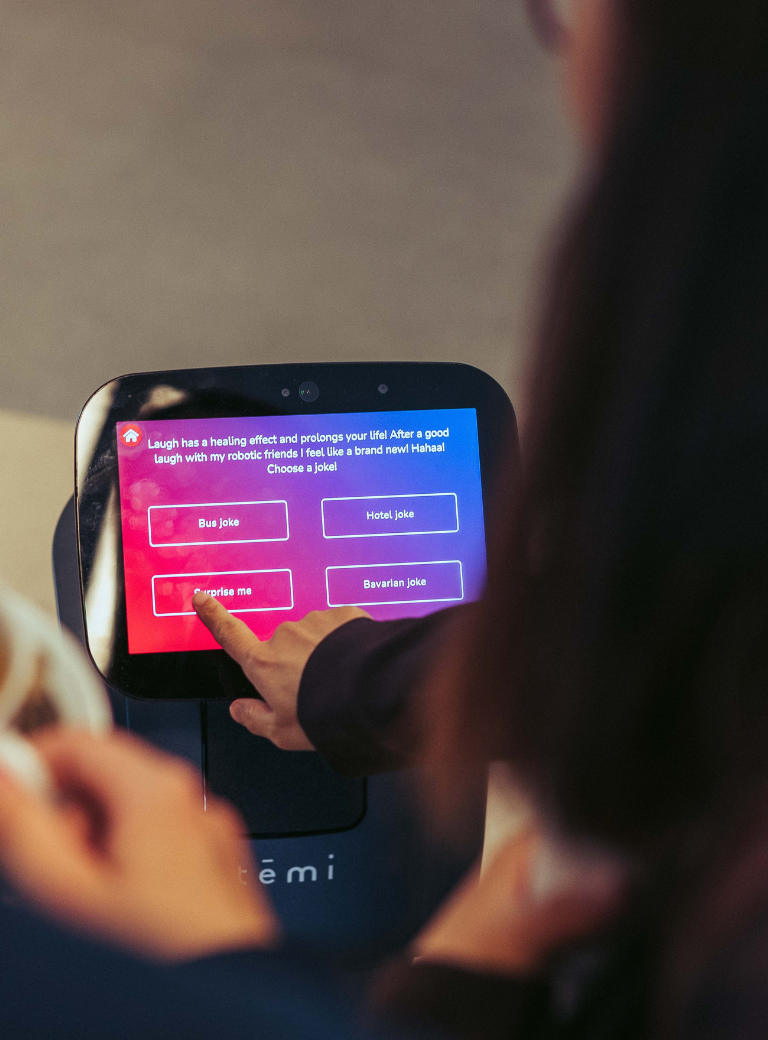

On trends and challenges in Revenue Management
The fourth conference on Revenue Management and Pricing in Service Sectors (REMAPS), also known as RevME Europe, was proudly organised and hosted by Hotelschool The Hague on its Amsterdam campus on 13 and 14 December. Earlier editions of this small-scale, internationally renowned conference in Revenue Management were organised by the Universities of Delaware and South Carolina (USA), Université d' Angers (France) and EHL Hospitality Business School Lausanne (Switzerland).
In the advent of RevME we interviewed Dr. Zvi Schwartz, professor in the Department of Hospitality and Sport Business Management in the Alfred Lerner College of Business and Economics at the University of Delaware, USA. Dr. Schwartz teaches courses in hotel management at both graduate and undergraduate level, and mentors doctoral and master’s students. He has received numerous research awards and is a three-time recipient of the ICHRIE’s W. Bradford Wiley Memorial Best Published Research Paper of the Year Award.
In this interview, Dr. Schwartz shares his thoughts on the trending topics in revenue management, the connection of revenue management with marketing, and the challenges revenue management is facing now.
What are the latest discussions in the area of revenue management every professional should be aware of?
Currently, I would say there are three interesting discussions around revenue management. To start with, there’s the obvious one; the pandemic. The number one thing we learned is that when an crisis like this happens, a lot of processes such as forecasting algorithms and machine generated pricing and allocation recommendations fail. They completely collapse because they rely on data that is no longer relevant. Therefore, at the heart of the COVID-19 crisis, it was a complete disaster. One thing we definitely learned is that we need to be better prepared for events of that scale since computers, software or algorithms do not function as intended.
Consequently, we reverted to the old days; almost everything relied on human subjective estimates, forecasts, and decisions without the support of algorithms. In fact, this highlighted how heavily we rely on subjective estimates and predictions, and how much humans are not very good at this. For example, revenue managers tend to override computer recommendations. However, we know from research, the majority of which has been conducted in The Netherlands by Larissa Koupriouchina and Jean-Pierre van der Rest, that overrides do not work well. Hence, the question is this; how do we make revenue managers aware of their biases and limitations as humans, help them overcome these, and make decisions that are rational rather than impacted by other factors? We need to remind ourselves that we have not yet overcome the psychological challenges when it comes to human decisions. When we make these predictions and decisions, the stakes are very high; if we make suboptimal decisions “we leave money on the table” as we say. This is an issue the revenue management community should pay attention to.
Another topic is the question of how we can move to total revenue management. By total revenue management we mean the optimisation of everything simultaneously; the rooms department, F&B, auxiliary services provided by the hotel, etc. Although people have been working on it for many years, it is still a great challenge yet to be solved.
The third one is the challenge of incorporating Artificial Intelligence (AI) in revenue management processes in a way that makes sense. There has been a lot of talk around this as in, “AI will replace humans”, but in reality, while we are moving steadily towards using more AI in systems and networks it is not fast enough to replace humans in the foreseeable future. The more advanced revenue management service providers use machine learning and AI for forecasting rather than optimisation. In the future we will incorporate it more and more and it will become more efficient.
"We need to remind ourselves that we have not yet overcome the psychological challenges when it comes to human decisions."
Dr. Zvi Schwartz



How is revenue management related to adjacent areas such as Marketing or Strategic Management?
From an economic theory point of view, marketing is extremely important to revenue management. The more efficient and successful marketing is in convincing our customers that we are the “best in the world”, the easier it is for Revenue Managers to do their job, especially in terms of price discrimination. If we have loyal customers that believe our hotel is the best out there, and there are no competitors, we can play a lot more with what we do compared to a scenario in which our customers think that all hotels are the same. If marketing and strategic differentiation of our products and services fail, it takes away from our ability to use revenue management practices profitably.
What challenges in revenue management may current students encounter in their professional future?
The firs challenge would be the overall shifting of revenue management scope and role in recent years. We have seen some major shifts where revenue management is becoming not only more prevalent but also taking a much bigger role within the hotel. The shift in the hierarchy diagram is obvious as well; for example, the revenue management function reporting directly to the president. So, students that go into the industry must understand the increasing role of revenue management even if they are not working directly in that function. Revenue management plays an increasingly important role in the day-to-day operations in many hotels. To be successful, students need to understand where revenue managers are coming from, what they are doing, and the way they are doing it. If the revenue management team does not do its work correctly or make mistakes, they should be able to step in.
A second challenge is understanding that technology is creeping into our industry mainly through revenue management. Today, a lot of the technological revolutions are coming through this department and students need to be aware of that. An example of how technology influences revenue management would be availability of data. For instance, when I was a management trainee at Hyatt many moons ago, on some days, my job was to call our competitors in Chicago and find what their rates are. By pretending I am a guest, I would write down their rates and submit a report to my manager. Today, we get in real time data from our competitors not only about their rates but also where their bookings come from and much more wonderful information that allow revenue management to make relevant decisions. It helps you take into consideration, even in your forecast, what your competitors are likely to do because you know what their situation is. This is a very interesting example of how things have shifted today.
Lastly, at my university, we emphasise the importance of our students being able to work with data themselves. Software such as R, Power BI, Tableau and Excel are much more intuitive now and it allows them to work successfully with data. Even if they are not in the revenue management team, they can communicate about it in an effective way as they have control over data, the ability to create reports, make predictions, and generally think for themselves. The more opinions we have, the better decisions we can make.
REMAPS Conference 2022
The fourth conference on REvenue MAnagement and Pricing in Service sectors (REMAPS), also known as RevME Europe, was held in Amsterdam last week. Hotelschool The Hague organised and hosted this conference on its campus. The latter offers academics, managers and consultants a unique platform and the best exposure to address main issues related to Revenue Management and Pricing in service sectors.
All information can be found on the website https://www.hotelschool.nl/research/revme-europe-2022/





